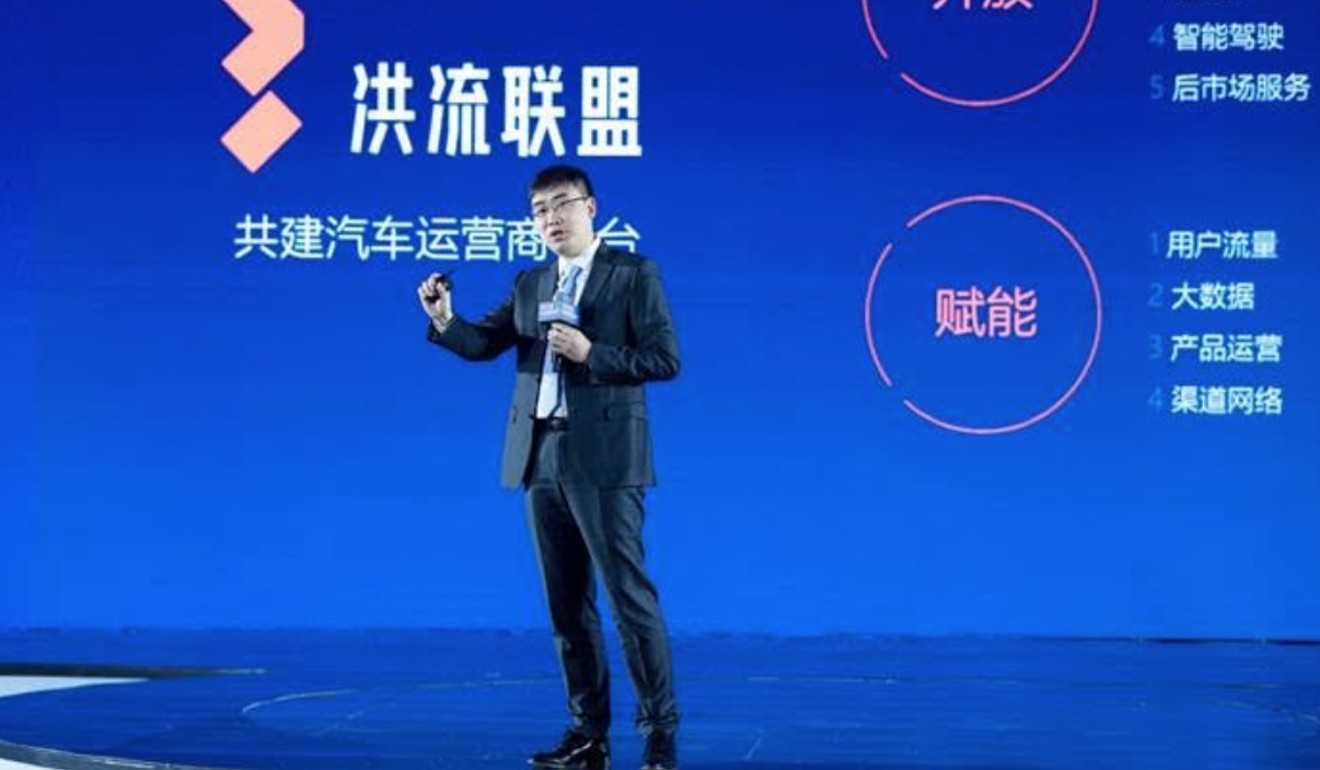
Didi by the numbers: ride-hailing firm covered more miles in 2018 than 5 Earth-to-Neptune round-trips
- Following scandals, Didi has focused on safety overhauls, including in-trip audio recordings by passengers and drivers and in-car panic buttons
China's largest ride-hailing services operator Didi Chuxing, which forced Uber Technologies out of the country, had a bumpy journey in 2018, as the company’s expansion plans were checked by passenger-death scandals and safety concerns.
As one of the world's most well-funded start-ups, Didi was riding high until two passengers were killed while using its service within the space of three months, putting the brakes on the unicorn’s growth and shining a spotlight on the wider on-demand transport industry in China.
Co-founder and chief executive Cheng Wei apologised for any role the company played in the deaths and said he would place safety as the core value in the company's growth and development, rather than sheer size and profit.
Since the deaths of the two female passengers at the hands of rogue drivers between May and August, Didi has focused on safety overhauls, including in-trip audio recordings by passengers and drivers and in-car panic buttons. Its Hitch service – which pairs drivers and passengers travelling the same route – was suspended indefinitely.
Official data, however, indicated that safety issues are a wider problem in China’s taxi sector. The incidence of crime per 10,000 taxi drivers is 13 times higher than the number for ride-hailing drivers, according to data released by China's Supreme Court in September.
Meanwhile, about 81 per cent of users prefer ride-hailing services to taxis in China, based on a survey of 11,420 people conducted in the fourth quarter of 2018 by consulting firm BigData-Research – with many of them citing convenience and diversity as the most important factors in user experience.
Before the safety scandals, Didi had been expanding both at home and overseas, launching in April the Didi Auto Alliance with 31 auto industry companies in China to build an integrated car operator platform and attempted to get a foothold in the country’s food delivery and bike-sharing industries.

In international markets, Didi had targeted growth in developing markets – taking advantage of its knowledge of congested cities – with the goal of becoming the world’s biggest transport platform in 10 years, serving more than two billion users, said Cheng at an April briefing.
China remains the largest ride-hailing market in the world, with a value of US$30 billion, according to estimates by consulting firm Bain & Company.
In the past six years, Didi has raised a total of US$20.6 billion in funding over 17 rounds. In the latest round in July, it received US$500 million from US travel firm Booking Holdings, according to corporate information data provider Crunchbase.
Didi acquired Brazil ride-sharing company 99 to expand its service in South America last January and teamed up with SoftBank Group Corp to provide platform services for the taxi industry in Japan. It also entered Mexico and Australia, with the launch of Didi Express last April and June respectively.
Didi, however, is still on the road to making a profit. Cheng disclosed in September that the start-up recorded a net loss of 4 billion yuan (US$585 million) in the first half of 2018 and that the ride-hailing firm has yet to set a firm date for its initial public offering.
So where does Didi stand now? The Beijing-based company recently provided an update on its operations as of December 31, 2018. Here are some interesting facts from Didi’s own numbers:
The platform had 550 million users, over 31 million drivers and its global ride-hailing network covered more than 1,000 cities around the world.
Didi users travelled 48.8 billion kilometres in 2018, equivalent to about five round trips from Earth to Neptune.
Passengers clocked up 800 million kilometres on pooled trips, saving 43 million litres of fuel and 97,000 tons of CO2 emissions [compared with travelling alone].
Total trips added up to 1.7 billion hours, comparable to linear human history from the Neolithic Age to the internet era.
Passengers queued for more than 44 million hours before getting their ride, and 2.5 billion requests were left unfulfilled.
Didi covered 565 government-listed poor counties in China with 703,200 local drivers.
Didi and its drivers sent 1.13 million lost items back to their owners, including nursing bottles and crayfish.

